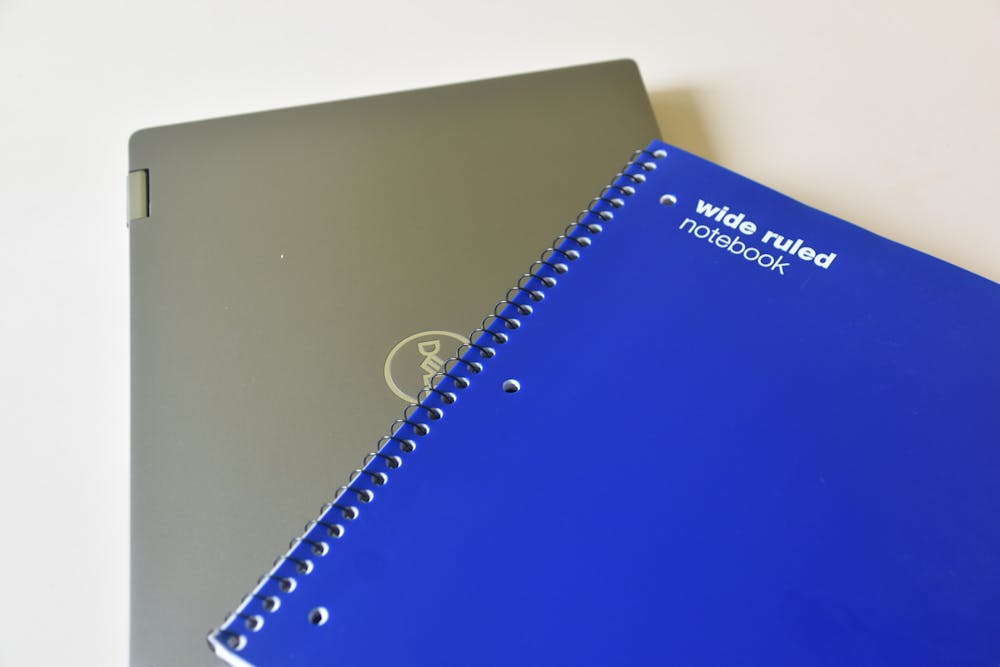
As soon as a lecture begins, instead of hearing what we need to know for the class, the sound of loud typing fills the room. We have all been in that scenario, whether it be in a meeting or in class. In a small class, like a seminar, even the quietest sounds distract the class. In a bigger lecture hall, hearing over 100 keyboards typing at the same time causes an already-full room to be even harder to hear in. But the noise of typing isn’t the only reason why students should avoid laptop usage in class.
We now have access to millions of websites and facts in the palm of our hands. Having access to all of this in class allows for distractions. We attend class to learn and consume knowledge that cannot otherwise be attained without paying attention. Students who use electronic devices in class are typically allowed to because their intention is note-taking, but from my experience, note-taking is not the main use of laptops in class. Students seem to find anything to do on their laptops except take notes and pay attention: whether it be gambling, watching sports, shopping, doing crossword puzzles, or playing every single Wall Street Journal game available.
This issue is exacerbated in classes that do not have exams. Additionally, when assignments do not stem from lecture material, students don’t find it necessary to take notes, and thus, take advantage of being able to use their laptops. I once noticed that not a single person in my class was taking notes because students had realized that the notes would not benefit their grade. A main part of a college education is the knowledge we gain in lecture. We have access to world-class professors who are experts in their fields; taking handwritten notes and engaging in class is one of the best ways to maximize learning.
In a class where laptop usage is not allowed, the benefits and difference in experience is easily visible. In his class “Folklore and Sexuality,” professor David Azzolina banned laptops and iPads. I took the class last fall, and the class discussion and involvement was completely enhanced. On the first day, many students were upset, but since I had already planned to use my notebook, I was unaffected. The participation and attention were increasingly noticeable compared to my other classes, even though it was a larger lecture. Guest speakers and documentaries had everyone's attention since there was no other screen to pay attention to. We were able to maximize our learning in an interesting subject, but if laptops were allowed, students would not have been nearly as engaged.
In an interview with Azzolina, he shared his theory on the benefits of handwritten notes: “Your body has its own way of making memories by using your own hands.” Studies have shown that handwriting helps with memorization, leading to more success in the classroom! However, he acknowledged that “if everyone is using laptops to take notes, it would be fine, but the reality is that it doesn't happen and students use it for other reasons.”
Laptop use has become the norm, and students will continue to use them. That being said, students who do should be courteous of others and attempt to not distract them. Instead of Googling when it comes time to answer a question, use your own knowledge; in class, we are supposed to challenge ourselves, not our internet skills.
ERIC NAJERA is a College junior studying history from Rolling Meadows, Ill. His email is najerae@sas.upenn.edu.
The Daily Pennsylvanian is an independent, student-run newspaper. Please consider making a donation to support the coverage that shapes the University. Your generosity ensures a future of strong journalism at Penn.
Donate



